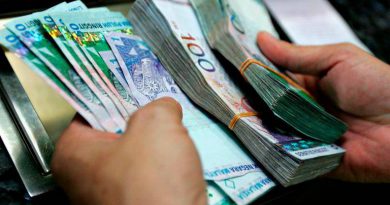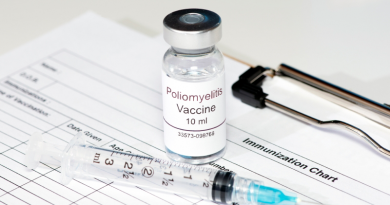Frontliners offered mental health support
KUALA LUMPUR: THE Health Ministry has put in place the Mental Health and Psychosocial Support Services (MHPSS) to help medical frontliners who are suffering from extreme mental and physical fatigue during the Covid-19 pandemic.
The services are made up of innovative and creative engagement approaches, and are being provided by specialised teams mobilised in states, districts and hospitals.
Selayang Hospital in Selangor was one of the healthcare institutions that provided the ministry’s MHPSS for healthcare workers at the hospital.
The services help them manage their mental health.
Senior consultant psychiatrist Dr Nor Hayati Ali, head of Selangor Psychiatry Services, said the pandemic was a “very different disaster” than the ones faced before like floods and landslides, where experts were able to deal with clients face-to-face and mobilise social capital to work with them.
“The pandemic has forced our society to go into isolation, while healthcare workers are required to do their best to investigate and manage those who are infected with Covid-19.
“The pandemic has also created a rare situation where healthcare workers are placed as frontliners and the Red Zone is the hospital itself,” she told the New Straits Times.
She said the mental health services provided by Selayang Hospital’s Psychiatry and Mental Health Department were carried out on two levels.
At the intra-hospital level, she said support for the mental health of healthcare workers was provided to prevent stress, burnout or post-traumatic stress disorder.
“We also need to continue to manage clients and new referrals from other disciplines.”
At the state level, support was provided at health clinics and quarantine stations under their care, she said.
“Our team aims to work in tandem with other agencies within and beyond the Health Ministry to implement MHPSS.
“The three core domains of objectives are to support and promote human capacity, improve social ecology, and understand the influence of culture and value systems and their importance alongside individual and social expectations.”
Selayang Hospital had come up with a creative well-being kit (WeCARE4UKit) for its staff, besides setting up a 3R Lounge for rest, relieve and recharge called Anjung Damai. It also organised a MHPSS Champion programme for frontliners.
Selayang Hospital MHPSS head coordinator Dr Muhammad Haniff Abdullah said the WeCARE4UKit included a small bottle of body wash, hand sanitiser, mask, energy bar, 3-in-1 coffee and tea bags.
Anjung Damai, meanwhile, was a lounge where healthcare workers could take a break, he said.
“Booking is done digitally via a personalised link, where personnel can fill out a health declaration form and book available slots. A maximum of five people can use the room at a time.”
Dr Haniff said 90 per cent of the lounge’s users said it had helped them cope with stress.
Under the Champion programme, he said, each department at the hospital would nominate a person to be MHPSS Champion, who would be provided with training and mental health resources.
The “champion”, to be officially appointed by the hospital director, would be provided with Psychological First Aid (PFA) training and mental health wellbeing materials to be shared in their departments, he said.
“MHPSS champions can be any volunteer who takes the effort to deliver PFA, raise awareness of mental health well-being among hospital staff, challenges mental health stigma and provides support to colleagues by finding out what and how they are feeling.”
Selayang Hospital’s Psychiatry and Mental Health Department head Dr Nik Nasyrah Nek Mohamed said the pandemic posed greater risk to frontliners.
Disruptions to their routine could compromise a sense of normalcy, which in turn, might trigger anxiety, pressure, stress or mental health issues.
“Humans are hardwired to do the best in a certain situation and we usually want to be in control. In any situation where the fear is unknown, this is not the case.
“During the pandemic, frontliners have to work in a different environment, away for their family for long hours. Daily activities with their children are interrupted and uncertainties become regular.
“Facing patients daily, they are forced to deal with the unknown in regard to risk of infection.
“They are mostly worried about infecting their loved ones and being perceived as contagious, which causes their children to be shunned by the community.”
The ministry’s MHPSS distributes screening evaluations through Google forms, besides offering psychosocial support through a helpline, psychological first aid, relaxation, art therapy, consultation and treatment.
Source: NST




